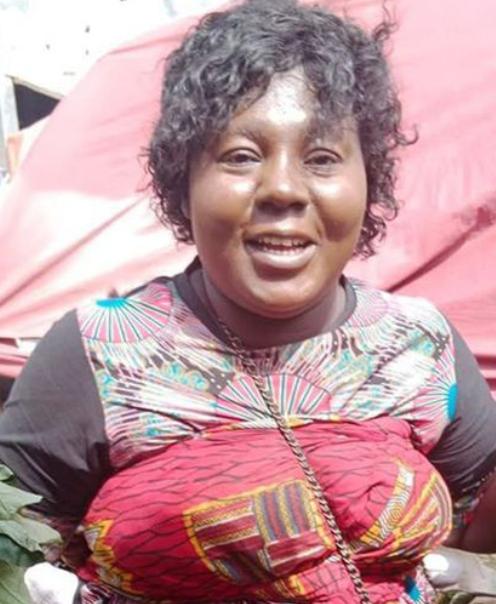
“Don’t Ever Use Motherhood as an Excuse Not to Hustle” — Nigerian Businesswoman Inspires Women with Story of Returning to Work Weeks After C-Section

In a society where women are often expected to pause their dreams, ambitions, and business pursuits the moment they embrace motherhood, one Nigerian businesswoman has sent shockwaves across social media with her bold, unapologetic, and deeply inspiring story. Gift C. Nnaji, an entrepreneur known for her determination and resilience, has challenged women to rethink the excuses they make in the name of motherhood. Her words, laced with raw experience and strength, have sparked conversations far beyond the walls of her business, resonating with women who find themselves caught in the struggle between nurturing a family and building a career. “Don’t ever use motherhood as an excuse not to hustle and make your own money,” she declared as she recounted how she resumed her business barely three weeks after undergoing a Cesarean section.
The statement, both daring and powerful, struck a chord because of the context in which she placed it. Motherhood, especially in the Nigerian setting, is often considered a full-time role, with women expected to devote their energy to taking care of the home while sometimes shelving personal pursuits. But for Nnaji, whose entrepreneurial journey has been defined by courage, the reality was different. She explained how she began walking gradually, fragile and weak, but still determined to return to the “bush markets” where she sourced produce for her thriving vegetable dehydration business. She strapped her baby on her back and went straight back into the hustle, working through the physical pain of recovery until she became stronger and stronger. For her, there was no room for excuses, no pause button for her goals, no waiting for the “perfect time” to resume her business.
This extraordinary testimony was accompanied by a throwback picture taken exactly two years ago, one that symbolized the beginning of her post-delivery hustle. She reminded her audience that when all the relatives who had come for omugwo—the traditional postpartum care period where mothers and female relatives assist a new mother—had returned home, she had no choice but to strap her son on her back and move. The image of a young mother, still recovering from major surgery, walking fragile steps into the marketplace with her baby secured behind her, is one that tells the story of countless Nigerian women who have turned pain into power and sacrifice into success.
Her post went beyond a personal story. It was a challenge. A call-out. A mirror held up to women who might have become comfortable in the notion that motherhood means the end of personal or financial ambition. “What is your excuse again for lazing around the house all in the name of taking care of the children?” she asked pointedly, a question that has left many reflecting on their choices and priorities. Her message was clear: motherhood is not a limitation, and while it is one of the most demanding roles in life, it should not become an excuse for financial dependency or personal stagnation.
In the same breath, Nnaji also gave a glimpse into the heart of her business. She and her team specialize in dehydrating vegetables for exportation, offering a wide range of Nigerian greens such as ugu, uziza, afang, oha, utazi, ewedu, scent leaf, bitter leaf, and more. This revelation added weight to her testimony because it showed that she was not just selling small quantities of produce, but running a structured business that requires sourcing, processing, and logistics. Her hustle is not the type that can be paused for long, and her commitment to keeping it alive—even during her most vulnerable period—underscored the message of grit and perseverance she sought to share.
Her post has since stirred a wave of reactions online, with some praising her resilience and others debating the practicality of her advice. Admirers hailed her as a true model of strength, applauding her for refusing to bow to the pressure of inactivity and for proving that women can balance motherhood and ambition if they choose to. They see her story as one that redefines empowerment, a real-life narrative that reminds women that financial independence is a necessity, not a luxury. “This is the kind of motivation Nigerian women need,” one commenter wrote. “Our mothers did it, and we too can rise beyond excuses.”
But as with every bold statement, her words also drew criticism. Some argued that urging women to hustle just weeks after a major surgical operation could be dangerous advice if taken literally. They highlighted the medical risks involved in not allowing the body adequate time to heal, pointing out that not every woman has the same physical strength or support system to make such a choice. Others accused her of being insensitive to the realities of women who may be battling postpartum depression, physical complications, or simply lack the resources to pursue entrepreneurship immediately after childbirth. The debate highlights the larger conversation surrounding the balance between encouraging resilience and acknowledging vulnerability.
Despite the criticisms, there is no denying that Gift C. Nnaji’s story has forced a new wave of discussion around motherhood and hustle culture in Nigeria. It has highlighted the silent struggles women face in combining family responsibilities with the harsh economic demands of survival, while also sparking admiration for those who manage to pull it off. It has also spotlighted the often-overlooked contributions of women in agribusiness, particularly those who are taking traditional produce into the global market through innovative means like dehydration and exportation.
Her testimony comes at a time when more women are seeking ways to assert their independence and rewrite the narrative of what it means to be a mother in today’s Nigeria. The message is not necessarily that every woman should return to work just weeks after giving birth, but rather that women should not allow motherhood to become a permanent shield for dependency or inactivity. It is a call to action for women to seek financial empowerment in whatever way they can, no matter their circumstances.
In the end, the story of Gift C. Nnaji is not just about a woman who resumed business after a C-section. It is about resilience, sacrifice, determination, and the relentless pursuit of financial independence. It is about challenging societal expectations and personal excuses. It is about rewriting the script for women everywhere who have been told that motherhood and ambition cannot coexist. As her words continue to echo across platforms, one truth remains clear: for many women, the hustle does not stop, even in the face of pain, fragility, and the daunting demands of raising a child. Gift C. Nnaji has reminded the world that excuses do not put food on the table, but courage, resilience, and hustle just might.

